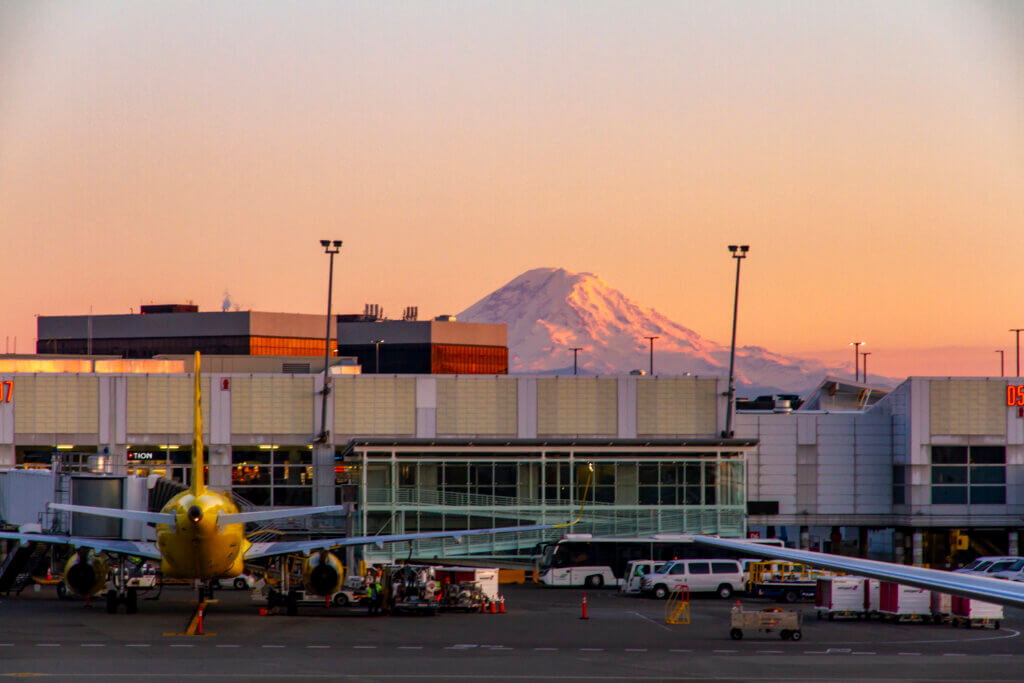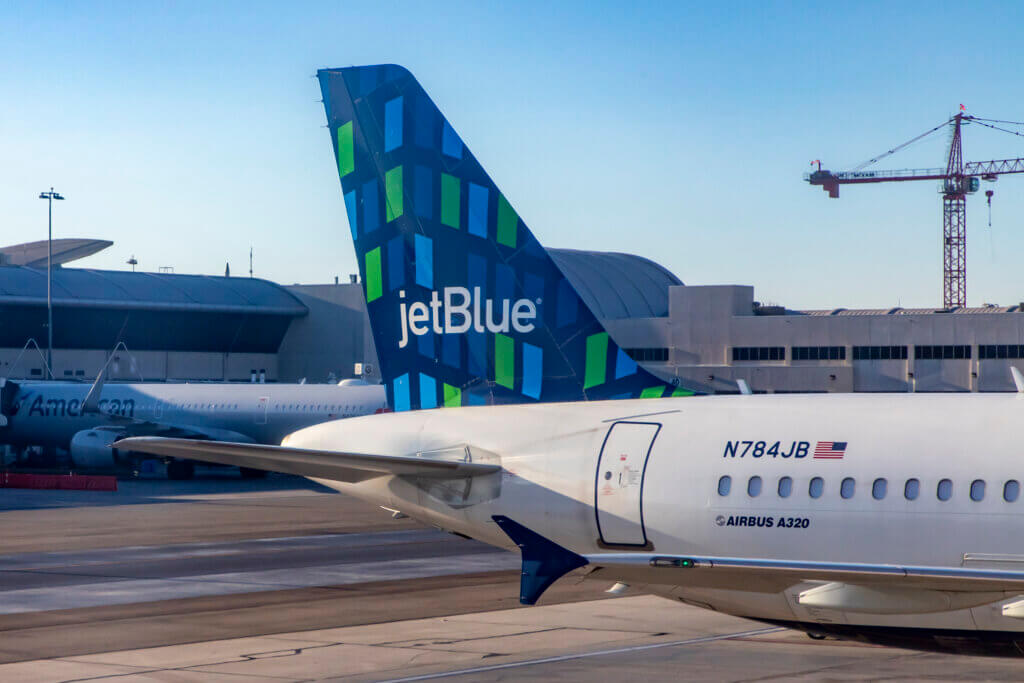Here in Hawaii, the focus has been on the out-of-the-blue Alaska-Hawaiian merger. However, another one has been making its way through U.S. courts for over a year. However, now we know the JetBlue-Spirit merger has been blocked by a U.S. District Court Judge.
On June 28, 2022, JetBlue and Spirit Airlines came to an agreement in which JetBlue would acquire Spirit for $3.8 billion. The reason? To grow. But it wasn’t Spirit’s network JetBlue was after – they already had tons of overlap, between 30% and 40% – no, they were after Spirit’s aircraft and pilots. So key was this to their growth strategy that JetBlue got into a massive bidding war with Frontier and, by most analysts’ opinion, massively overpaid for Spirit.
The deal was also important to Spirit, which, like Hawaiian, has been struggling to stay afloat. So precarious is their situation that the news that the JetBlue-Spirit merger has been blocked sent their stock price tumbling 47%. With all that, then, what the hell happened?
JetBlue-Spirit Merger Has Been Blocked
Whether or not the Justice Department would prevail in its antitrust lawsuit against JetBlue was not a foregone conclusion. JetBlue had made very sensible arguments – it needs to merge to compete with the Big Four and Spirit (and it) may not survive on its own – and pledged to make substantial concessions by way of divesting slots and gate spaces to help bolster competition. However, it’s long been understood that Spirit’s assets would be integrated into JetBlue, which means removing seats from aircraft to increase comfort and, of course, increase prices.
You see, JetBlue is a Low Cost Carrier (LCC) much like Southwest. However, unlike Southwest, JetBlue prides itself on providing more premium features, such as seatback entertainment and free WiFi, and now, their signature Mint suites. Spirit, on the other hand, is an Ultra-Low Cost Carrier (ULCC), which competes by selling the lowest priced ticket around, but charging you for things other airlines wouldn’t. There is a fee for virtually everything on Spirit, and, of course, they have among the densest aircraft configurations in America.
However, Spirit is unique among ULCCs. You see, most of these airlines fly from secondary cities with little to no service to other secondary cities, along with popular visitor destinations. They seldom compete with the Big Four – American, Delta, Southwest, and United. But that’s what Spirit did. They flew to major cities in direct competition with larger airlines, putting competitive pressure on them.

This difference, along with Spirit’s unique model, were critical sticking points in Massachusetts District Court Judge William Young decision-making and why the JetBlue-Spirit merger has been blocked. In his decision, Judge Young argued that “the Defendant Airlines already have high combined market shares in numerous markets. As measured by metropolitan area, JetBlue and Spirit have 99 nonstop overlap routes; between 30% and 40% of JetBlue and Spirit’s nonstop routes overlap.”
As a result of that overlap, Young further states, “The proposed merger has the potential to increase prices for customers in two ways: 1) with the elimination of Spirit from the market, consumers would no longer have Spirit’s low prices as an option; 2) with the elimination of Spirit from the market, consumers would no longer benefit from Spirit’s downward pressure on other airline’s prices.”
Judge isn’t wrong here. JetBlue and Spirit operate on significantly different models. And, indeed, routes that don’t have competition from other ULCCs on them are at high risk of price increases in a post JetBlue-Spirit merger market. Of course, if Spirit fails, then that decision is moot anyway. Doubly so if JetBlue also goes under.
Heck, you don’t even have to dig into the ruling to see that this was a major influence in Young’s decision. At the start of his ruling, Young writes, “Spirit is a small airline. But there are those who love it. To those dedicated customers of Spirit, this one’s for you. Why? Because the Clayton Act, a 109-year-old statute requires this result — a statute that continues to deliver for the American people.”
What Next?
Well, now that the JetBlue-Spirit merger has been blocked, there really are only two things that can happen. One is that JetBlue can file an appeal, which will be a lengthy and expensive process, especially since JetBlue has to make payments to Spirit for the protracted process. However, in the second option, JetBlue can simply walk away, but would have to pay Spirit $470 million in break-up fees. Ouch.
Either way, JetBlue is be shelling out serious amounts of cash. Which way they go greatly depends on their management’s appetite to endure another round of expensive, time-consuming legal battles. Shareholders seem to think that the fact that the JetBlue-Spirit merger has been blocked is a good thing, as actually closed up today.
I highly doubt this will happen, but a remote third option would be for JetBlue to not only abandon its takeover bid of Spirit, but also get into a bidding war with Alaska Airlines for Hawaiian. Alaska’s current offer to Hawaiian is $1.9 billion, or $18 per share, which is believed by some to be an overpayment, especially when you consider that Hawaiian has a fleet of 62 aircraft, a large portion of which are old Boeing 717s that are nearing their cycle limits.
As a result of its financial condition, fleet, and other factors, paying more than $1.9 billion for Hawaiian wouldn’t be wise, but Hawaiian’s operations would be very complimentary to JetBlues, though acquiring them wouldn’t serve the same purpose as acquiring Spirit.
Will They Survive?
Just because the JetBlue-Spirit merger has been blocked doesn’t mean both airlines will go bankrupt tomorrow. Bother are fairly well capitalized. As of the end of Q3 2023, JetBlue had $1.5 billion in cash, cash equivalents, short-term investments, and credit facilities available to it, while Spirit had $1.2 billion. Sure, that’s not going to last terribly long at the rate they’re both bleeding, but its enough to hold out for a while longer.
Spirit may be the better of the two, as it spent 2023 trying to shore up its financials, whereas JetBlue focused primarily on acquiring Spirit. In that regard, JetBlue might be the more vulnerable of the two. That said, the PW1100G issue has been a major burden on Spirit – the most impacted U.S. airline aside from Hawaiian.
Speaking of Hawaiian, they have $1.39 billion in liquidity available to them, and while they’re bleeding out, too, they’re not losing money anywhere near the rate JetBlue and Spirit are.
What Impacts Does This Have on the Alaska-Hawaiian Merger?
Honestly, the fact that the JetBlue-Spirit merger has been blocked doesn’t automatically doom the Alaska-Hawaiian merger. These are vastly different animals. Again, JetBlue was acquiring a lower-cost competitor with an enormous amount of route overlap. And while both airlines are smaller than Alaska, combined, they’d be much larger than Alaska-Hawaiian, thanks to Hawaiian’s relatively tiny size.
While Alaska and Hawaiian do have overlaps, there’s enough competition in every one of these routes that the combined airline wouldn’t be close to holding a monopoly. In fact, both are struggling to compete against the Big Four, and especially against Southwest. Southwest has been especially problematic for Hawaiian, which is a big reason why they struggling so much today.
Of course, that the JetBlue-Spirit merger has been blocked does increase the legal risks of the Alaska-Hawaiian merger. But, again, these cases are quite different, and the same judge won’t likely hear a potential Alaska-Hawaiian case, which means the case could get a different interpretation.
JetBlue-Spirit Merger Has Been Blocked, Final Thoughts
Well, now that we know that the JetBlue-Spirit merger has been blocked, it’ll be really interesting to see what happens next. What JetBlue’s management will decide to do next is anyone’s best guess, and I’m not even going to try to speculate on this one. That said, I do believe that it’ll have minimal (if any) impacts on a potential Alaska-Hawaiian case, and that one should proceed as planned. But only time will tell.

